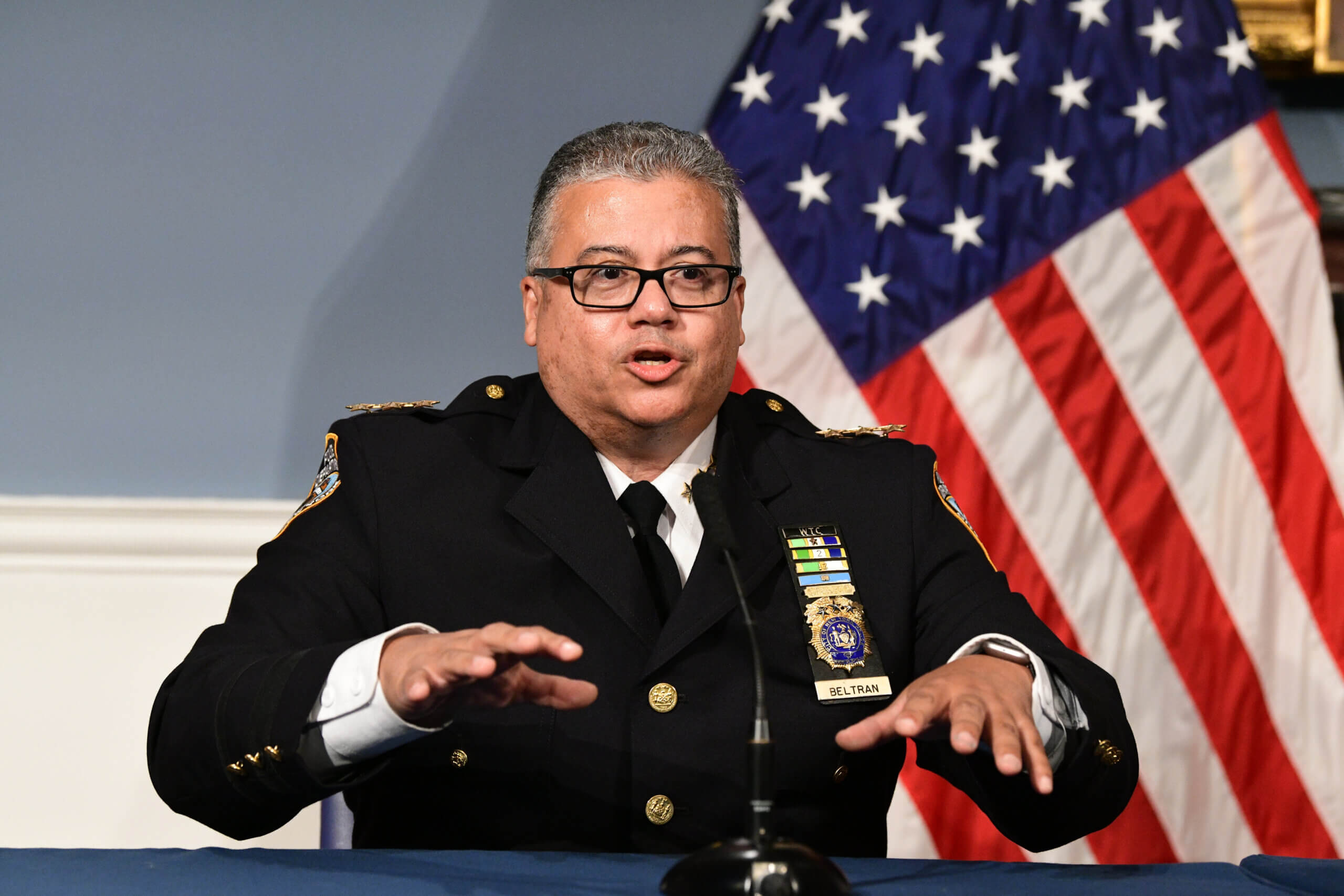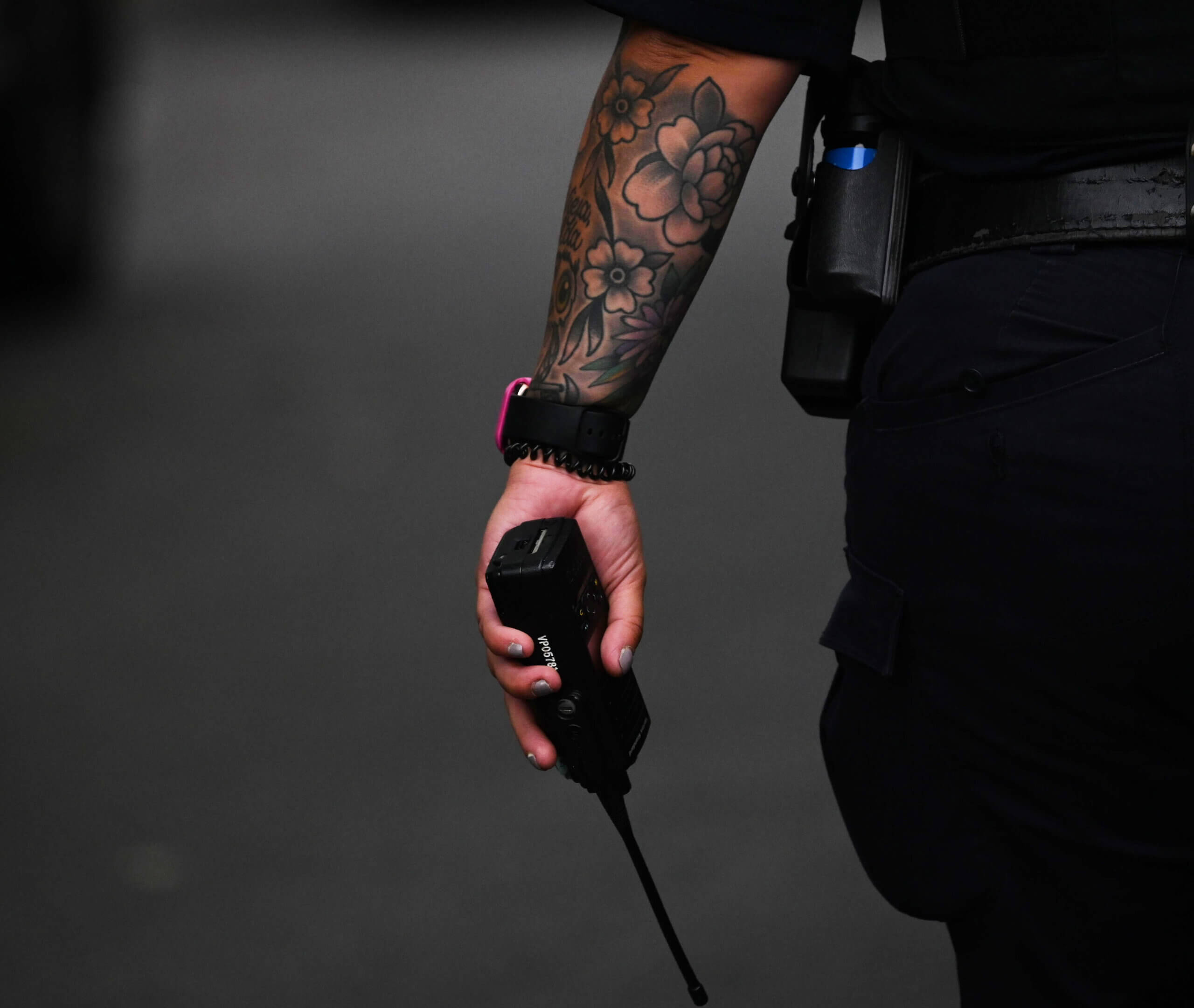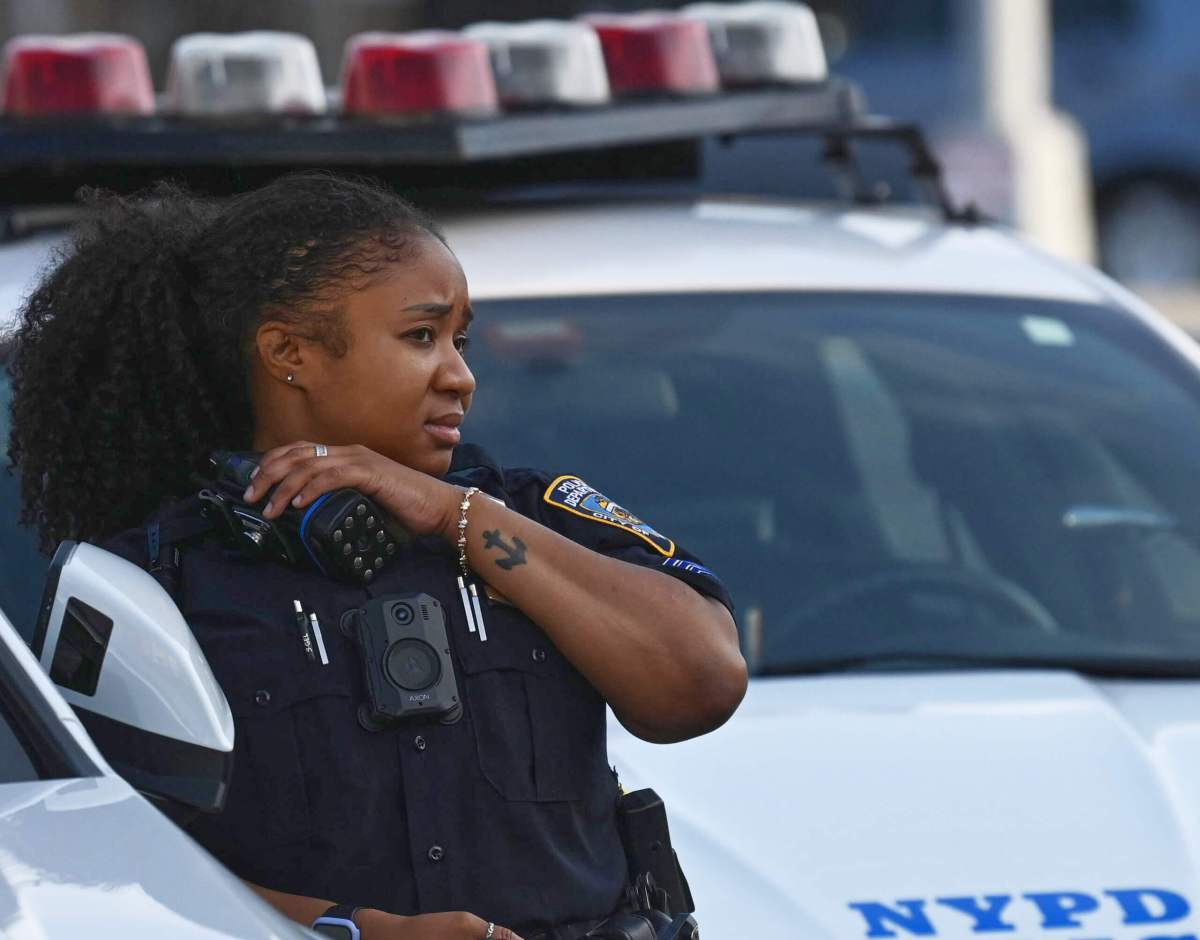Nearly a month after six Brooklyn police precincts blocked public access to their radio transmissions, NYPD officials now assure the media that they will be able to listen in — although “with a delay.”
The announcement comes as media groups have been calling for “real-time” access to these transmissions in order to provide information to the public in a timely manner.
The revelation came after a public safety briefing at City Hall Friday afternoon when Chief of Information Technology, Ruben Beltran, declined to answer a question as to whether the media would be granted access to the radio transmission. Officials then told amNewYorkMetro after the briefing that the media would in fact get access, although on a time-delayed basis.
The NYPD changed the radios used by cops in six Brooklyn North precincts last month, part of a nearly billion-dollar communications upgrade. Police officials say the upgrade and encryption of the radios is for “the safety of the officers and the public.” The department says it doesn’t want criminals listening in.
The change also affects apps such as Citizen that uses the radio transmissions to both confirm and find incidents. More than 2.5 million New Yorkers use the APP to know what is going on in their respective neighborhoods.
Officials at Citizen have said that they are “optimistic that we will continue to serve city of New York with real time safety notifications.”
The police argue that the change was not designed to shut out the media.
“It was not the intention to lock out the media,” said Deputy Inspector Eric Robinson, the commanding officer for the deputy commissioner for the public information office. He spoke exclusively to amNewYorkMetro shortly after the briefing.
Robinson said the NYPD is in the midst of coming up with a solution to maintain transparency. This is likely to include access to the radio transmissions, although with a delay.
“We are looking at what other cities are doing, whether it’s a half hour, 15 minutes and trying to figure out the best way and how much delay will be best for the city,” Robinson said after the briefing.
The precincts where officers have been using encrypted radios since July 17 include the 90th and 94th, covering Williamsburg and Greenpoint; the 81st and 83rd, covering Bushwick and Bedford-Stuyvesant; and the 84th and 88th, covering Brooklyn Heights and Cobble Hill.
Representatives of the media argue that the NYPD essentially controls the narrative by blocking real time access through encryption. Advocates have been pushing for “real-time” access to police communications as events happen—claiming that no access or delayed communications restricts their ability to independently report on breaking news such as active crimes, collisions and even police-involved shootings or assaults.
Robinson said it is necessary to delay communications, even to the media, as they believe “bad actors” might use communications from police in the field.

In the past, the police handled media credentialling, but the city council handed that power to the Mayor’s Office of Media and Entertainment. The change took place during the height of the Black Lives Matter movement when several people were denied press cards because the police said they didn’t qualify for it.
Some NYPD officials have questioned whether those issued MOME credentials were adequately vetted to be actual members of the media.
Mickey Osterreicher, general counsel for the National Press Photographers Association, said he and other media groups had concerns about moving the credentialling process from the police. He said the worry was that cops might not have much faith in the current credentials because they no longer do the vetting.
“Clearly as we predicted they were not going to respect the MOME credential,” Osterreicher said. “This is what I was worried about – you might as well bring a note from your mother.”
Osterreicher said he was unsure what will come from the NYPD’s assurance that the radio transmissions with be available– albeit delayed. “I think we have to wait and see what the delay is – clearly, it’s just like justice delayed is justice denied, especially in New York City. It is especially necessary for photojournalists who can’t make pictures after the fact.”
Police radio encryption has moved front and center for many news outlets that depend on police radio transmissions to find breaking news throughout the city. Given the encryption, eight media organizations have joined together as part of the New York Media Consortium, comprised of thousands of reporters, photographers and their media companies.
The group was displeased upon learning that the six precincts were encrypting their transmissions, especially after leaders say they were told that encryption wouldn’t occur until 2024.
Police radio encryption has gone into effect in many cities around the country. Baltimore rolled back full radio black outs last month and now provides a 15-minute delay. Chicago has a 30-minute delay but is in the process of deciding whether to shorten it. Palo Alto, meanwhile, reversed its initial decision and now provides full access to the public. San Diego, however, has full encryption with no access.
The mayor’s office issued a statement saying that the NYPD has yet to finalize a policy.

Read more: Surviving Superstorm Sandy: Firsthand Accounts from NYC



































